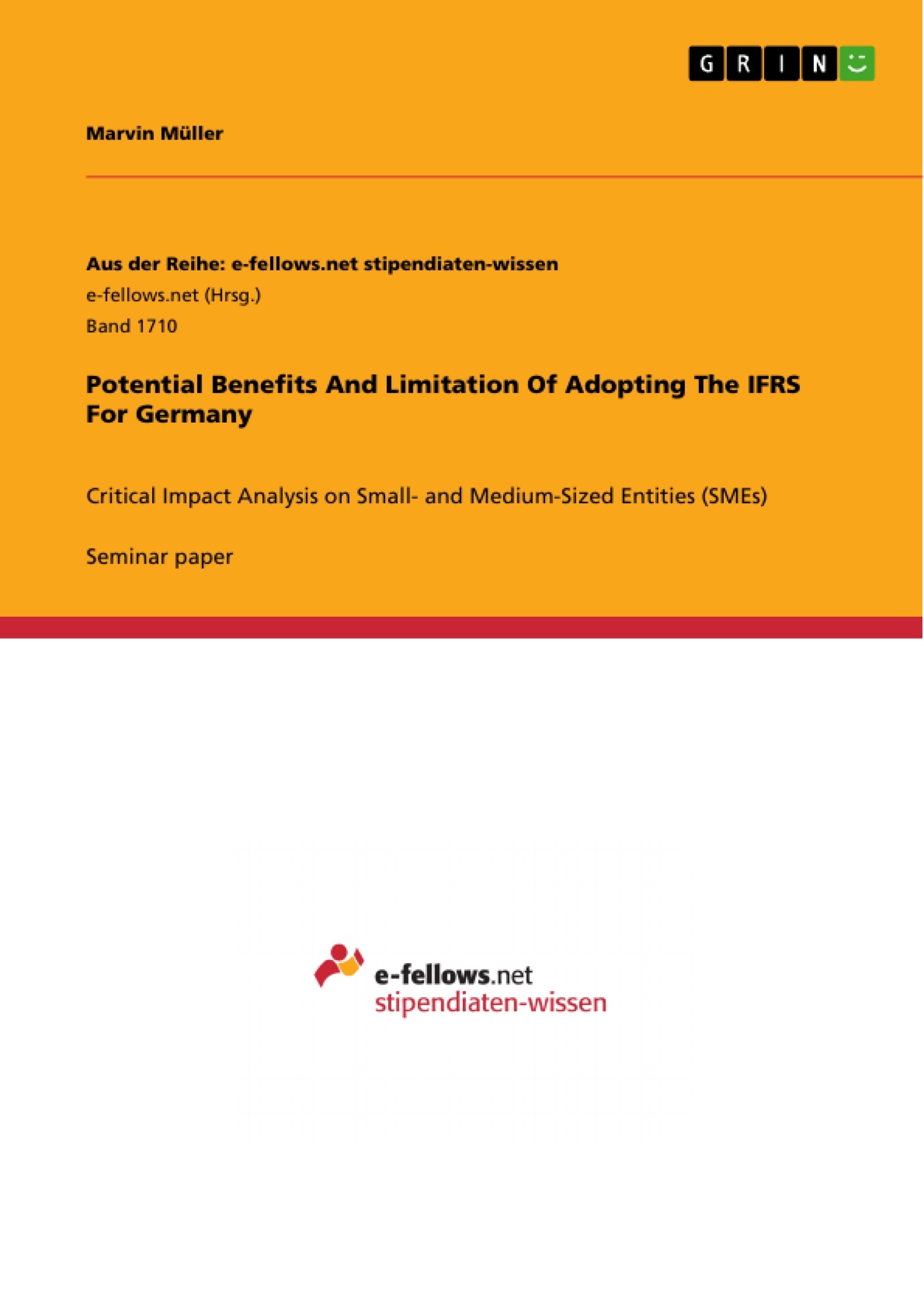The report aims to analyse the opportunities, negative impacts and limitations of adopting IFRS for German SMEs. At first, a classification of SMEs in Germany is given and their current situation is demonstrated. The next passage critically analyses the impact of an introduction of IFRS for SMEs in Germany. The analysis includes investigating if the effect varies in different crucial business factors of SMEs as well as their company type. At last, the results are summarised and recommendations are given.
Table of Contents
- 1. Introduction
- 2. SMEs in Germany
- 2.1 Classification
- 2.2 Current situation
- 3. Critical Impact Analysis
- 3.1 Key Aspects
- 3.1.1 Investor Communication
- 3.1.1.1 Home Country
- 3.1.1.2 Abroad
- 3.1.2 Operations and Internal Procedures
- 3.1.2.1 Corporate Governance
- 3.1.2.2 Internal Planning
- 3.2 Further Aspects
- 3.2.1 Financing
- 3.2.2 Financial Statement Preparation
- 3.2.3 Legislation
- 3.2.4 Accounting and Tax
- 4. Summary and Conclusions
Objectives and Key Themes
This report analyzes the potential benefits and limitations of adopting IFRS for German SMEs. It aims to provide a critical impact analysis, examining the opportunities, negative impacts, and limitations of this adoption. The report focuses on the current situation of SMEs in Germany, including their classification and the implications of IFRS adoption on key aspects of their operations.
- Impact of IFRS adoption on German SMEs
- Analysis of key aspects like investor communication, operations, and internal procedures
- Evaluation of further aspects such as financing, financial statement preparation, and legislation
- Comparison of German GAAP and IFRS
- Assessment of the implications of IFRS adoption on different types of SMEs
Chapter Summaries
The report begins with an introduction that outlines the purpose and scope of the analysis. Chapter 2 provides a classification of SMEs in Germany, describing the current situation and relevant legislation. Chapter 3 critically analyzes the impact of IFRS adoption on key aspects of SME operations, including investor communication, operations and internal procedures, and other critical factors such as financing and financial statement preparation.
Keywords
The report examines the potential benefits and limitations of adopting IFRS for German SMEs. Key topics include the impact of IFRS on investor communication, operations, internal procedures, financing, financial statement preparation, and legislation. The analysis focuses on the comparison of German GAAP and IFRS, as well as the implications of IFRS adoption for different types of SMEs. The report provides a comprehensive overview of the critical factors to consider when evaluating the potential benefits and limitations of IFRS adoption for German SMEs.
- Citar trabajo
- Marvin Müller (Autor), 2016, Potential Benefits And Limitation Of Adopting The IFRS For Germany, Múnich, GRIN Verlag, https://www.grin.com/document/315419



